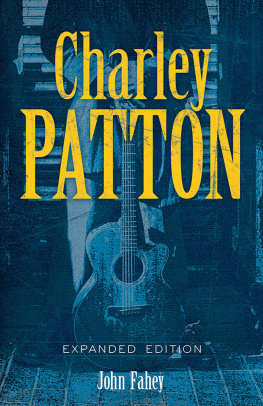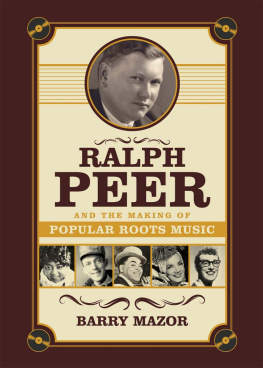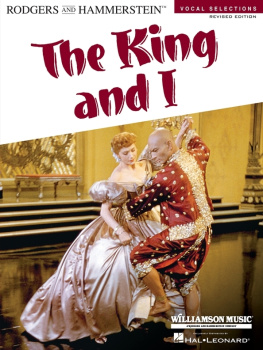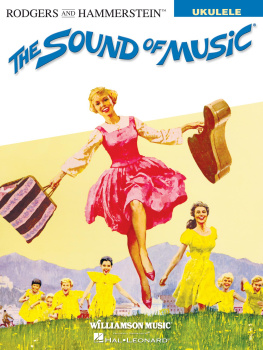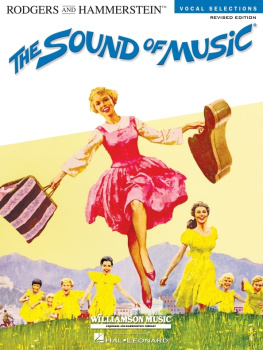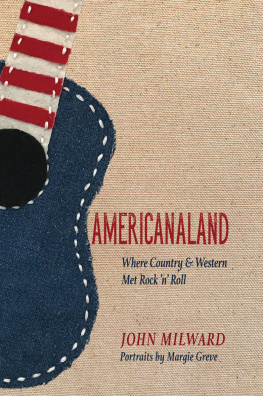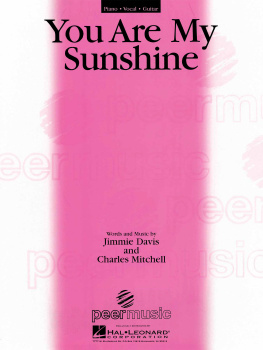Ben Wynne - In Tune: Charley Patton, Jimmie Rodgers, and the Roots of American Music
Here you can read online Ben Wynne - In Tune: Charley Patton, Jimmie Rodgers, and the Roots of American Music full text of the book (entire story) in english for free. Download pdf and epub, get meaning, cover and reviews about this ebook. year: 2014, publisher: LSU Press, genre: Politics. Description of the work, (preface) as well as reviews are available. Best literature library LitArk.com created for fans of good reading and offers a wide selection of genres:
Romance novel
Science fiction
Adventure
Detective
Science
History
Home and family
Prose
Art
Politics
Computer
Non-fiction
Religion
Business
Children
Humor
Choose a favorite category and find really read worthwhile books. Enjoy immersion in the world of imagination, feel the emotions of the characters or learn something new for yourself, make an fascinating discovery.

In Tune: Charley Patton, Jimmie Rodgers, and the Roots of American Music: summary, description and annotation
We offer to read an annotation, description, summary or preface (depends on what the author of the book "In Tune: Charley Patton, Jimmie Rodgers, and the Roots of American Music" wrote himself). If you haven't found the necessary information about the book — write in the comments, we will try to find it.
Ben Wynne: author's other books
Who wrote In Tune: Charley Patton, Jimmie Rodgers, and the Roots of American Music? Find out the surname, the name of the author of the book and a list of all author's works by series.
In Tune: Charley Patton, Jimmie Rodgers, and the Roots of American Music — read online for free the complete book (whole text) full work
Below is the text of the book, divided by pages. System saving the place of the last page read, allows you to conveniently read the book "In Tune: Charley Patton, Jimmie Rodgers, and the Roots of American Music" online for free, without having to search again every time where you left off. Put a bookmark, and you can go to the page where you finished reading at any time.
Font size:
Interval:
Bookmark:
IN TUNE
CHARLEY PATTON
JIMMIE RODGERS
AND THE
ROOTS OF AMERICAN MUSIC
BEN WYNNE

LOUISIANA STATE UNIVERSITY PRESS
BATON ROUGE
Published by Louisiana State University Press
Copyright 2014 by Louisiana State University Press
All rights reserved
Manufactured in the United States of America
First printing
DESIGNER: Michelle A. Neustrom
TYPEFACE: Whitman
PRINTER AND BINDER: Maple Press
LIBRARY OF CONGRESS CATALOGING-IN-PUBLICATION DATA
Wynne, Ben, 1961
In tune : Charley Patton, Jimmie Rodgers, and the roots of American music / Ben Wynne.
pages cm
Includes bibliographical references and index.
ISBN 978-0-8071-5780-0 (cloth : alk. paper) ISBN 978-0-8071-5781-7 (pdf) ISBN 978-0-8071-5782-4 (epub) ISBN 978-0-8071-5783-1 (mobi) 1. Popular music United States19211930History and criticism. 2. Blues (Music) To 1931History and criticism. 3. Old time musicHistory and criticism. 4. Patton, Charley, 18911934. 5. Rodgers, Jimmie, 18971933. I. Title.
ML3477.W96 2014
781.6430973dc23
2014011363
The paper in this book meets the guidelines for permanence and durability of the Committee on Production Guidelines for Book Longevity of the Council on Library Resources. 
For Lily
THE SETTING
COMING OF AGE
FOR THE RECORD
HEIRLOOMS
T his book would not exist without the help and encouragement of many people to whom I will always be grateful. I would like to thank Rand Dotson, Lee Sioles, Jennifer T. Keegan, as well as the entire staff at LSU Press for being willing to take a chance on my manuscript. They have been a pleasure to work with. I would also like to express my gratitude to Stan Ivester for his outstanding editing skills. This book is the culmination of a five-year effort during which time I met and corresponded with staff members at many libraries and archives. I would like to thank the always friendly and helpful staff at the Mississippi Department of Archives and History as well as the staffs at the Eudora Welty Public Library in Jackson, Mississippi; the Tennessee State Library and Archives; the Alabama Department of Archives and History; the Department of Archives and Special Collections at the J. D. Williams Library at the University of Mississippi; the Southern Historical Collection at the University of North Carolina; the Hal Leonard Corporation; Special Collections at the Mississippi State University Library; the Millsaps-Wilson Library at Millsaps College; Special Collections at the University of Southern Mississippi Library; the University of Georgia Library; the John Harrison Hosch Library on the Gainesville campus at the University of North Georgia; the Roberts-LaForge Library at Delta State University; the Country Music Hall of Fame in Nashville; the Rock and Roll Hall of Fame in Cleveland; and the Delta Blues Museum in Clarksdale, Mississippi. Although readers will find their names in the books notes and bibliography, I would like to recognize Nolan Porterfield, David Evans, Barry Mazor, Gayle Dean Wardlow, Stephen Calt, and Jocelyn Neal, whose past work on Jimmie Rodgers and Charley Patton provided insights and biographical details that were helpful as I tried to weave together the stories of the two artists.
I owe a debt of gratitude to many individuals who were willing to take the time to help me with photographs and illustrations. Paramount among these were Greg Johnson, curator of the outstanding Blues Archive at the University of Mississippi, Neil Lerner from the Music Department at Davidson College, John Tefteller of Blues Images, Betty Lou Jones, president of the Jimmie Rodgers Foundation in Meridian, Mississippi, and cartographer Mary L. Eggart. I would also be remiss if I did not thank Tom Rushing for his correspondence about his family as it related to the Charley Patton song Tom Rushen Blues, and Robin Rushing, noted daughter of the Delta and good friend whose input and opinions on the southern existence are always highly valued. Though I have never met him personally, I would like to thank Keith Richards of the Rolling Stones who, many years ago, shocked me by answering my simple fan letter with a handwritten note paying homage to Jimmie Rodgers. In its own way that note was inspirational, and I still have it in a frame on my wall.
I owe an intellectual debt to a number of people who have helped and inspired me through the twists and turns of academia. Among those are Robert Haws, Charles Reagan Wilson, Ted Ownby, Nancy Bercaw, Sheila Skemp, Michael Namorato, Charles Eagles, and David Sansing, all of whom were at the University of Mississippi while I was in graduate school; Ron Howard and Kirk Ford from Mississippi College in Clinton, Mississippi; Charles Sallis and Robert S. McElvaine from Millsaps College in Jackson, Mississippi; and James C. Cobb from the University of Georgia. I would also like to acknowledge every teacher that I had at St. Andrews Episcopal School in Jackson, Mississippi, from the first grade in 1967 through my senior year in 1979. They laid the foundation for my life at what I believe is one of the best schools in the nation.
I would like to thanks a number of my colleagues from the University of North Georgia, including Chris Jespersen, dean of the College of Arts and Letters; Ric Kabat, associate dean of the College of Arts and Letters; and Tim May, chair of the History, Anthropology, and Philosophy Department, all of whom helped me locate resources for this effort. I would also like to single out my history and anthropology colleagues from the universitys Gainesville and Oconee campuses who, for the last decade, have creating a warm and collegial work atmosphere conducive to academic ventures of all kinds. These fine scholars are Jeff Pardue, our departments associate chair, and in alphabetical order, Martin Blackwell, Lorraine Buchbinder, Dee Gillespie, Phillip Guerty, George Justice, Jonas Kauffeldt, Johanna Luthman, Heather Murray, Steve Nicklas, Clay Ouzts, Warren Rogers, and Pam Sezgin. It is a pleasure to know them all, and I hope I am worthy of their company. I would also like to thank my former colleague at the University of North Georgia, the formidable political scientist and proud North Carolinian H. Lee Cheek, for his encouragement and counsel.
I have many old friends and family members who are perpetually a great source of comfort. While my friends are numerous, I would like to acknowledge three, Brant Helvenston, John Leggett, and Alan Vestal, who were there during a rough patch while this manuscript was in process. Last but certainly not least, I would like to thank my wonderful family, Carly Wynne, Lily Wynne, Patricia Wynne and Noelle Wynne, who are always there with love and support. Lily, I am proud to dedicate this book to you.
IN TUNE
We never would have had any segregation if people
wouldve had enough music around.
B. B. KING
O n the afternoon of May 24, 1933, a frail, tubercular shell of a man strained to stand up and lean toward a microphone set to capture his voice. He was a singer and songwriter who had come to the Victor recording studios in New York City to make a record, though his doctors had advised him against making the trip. It was clear to anyone who came in contact with the man that he belonged in bed. His lungs were failing and his body ached, but despite the pain he was still able to sing. Refusing to cut the session short, he recorded four songs that day. At one point he could no longer standit took too much energyand a well-stuffed lounge chair was brought into the studio for him to sit in as he performed. A special cot had already been set up nearby so that he could lie down and rest between takes. Everyone at the session, the engineers and the other musicians, at some point were likely thinking the same thing: How is this man able to perform? How is he still alive? When the session ended, the singer struggled to make his way out of the building, into a taxi, and back to his room at the Taft Hotel. Less than forty-eight hours later the end came. Jimmie Rodgers, the Father of Country Music, was dead at the age of thirty-five.
Next pageFont size:
Interval:
Bookmark:
Similar books «In Tune: Charley Patton, Jimmie Rodgers, and the Roots of American Music»
Look at similar books to In Tune: Charley Patton, Jimmie Rodgers, and the Roots of American Music. We have selected literature similar in name and meaning in the hope of providing readers with more options to find new, interesting, not yet read works.
Discussion, reviews of the book In Tune: Charley Patton, Jimmie Rodgers, and the Roots of American Music and just readers' own opinions. Leave your comments, write what you think about the work, its meaning or the main characters. Specify what exactly you liked and what you didn't like, and why you think so.

